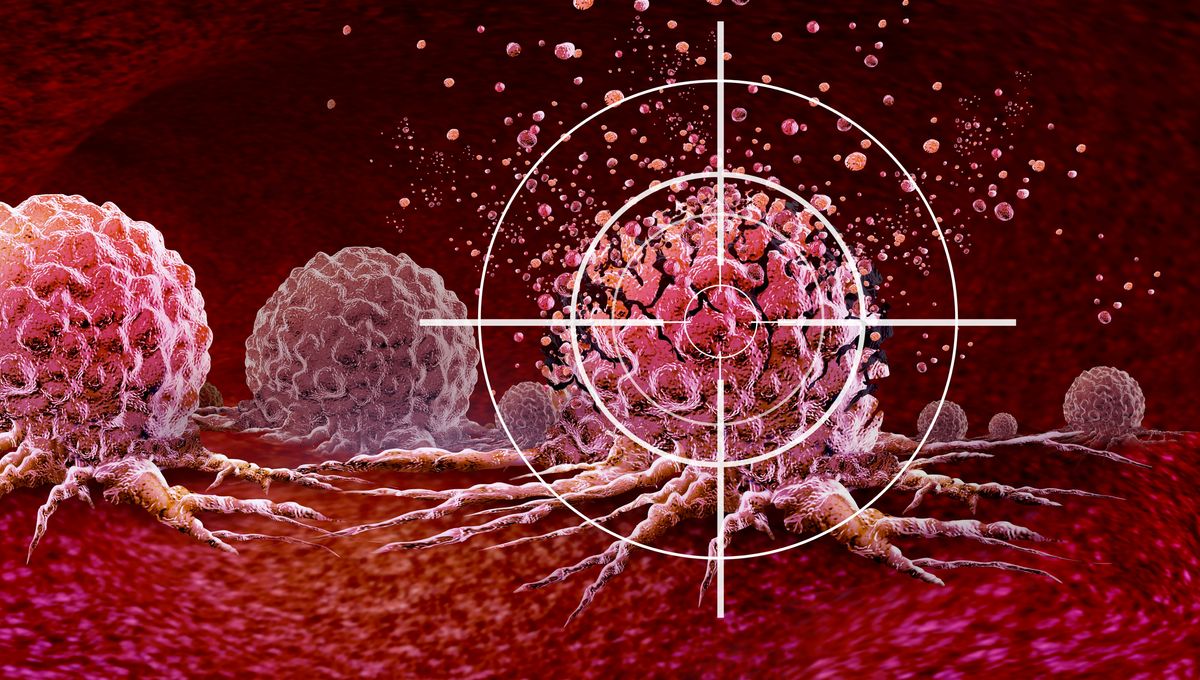
A surprising finding in a mouse model could lead us to a new way of treating some types of cancer, with a helping hand from an unlikely source: COVID-19. An immune mechanism that was activated in the mice when they were given drugs to simulate severe COVID-19 had the side effect of fighting cancer, causing four types of tumors to shrink.
Finding ways to turn the body’s own immune system against cancerous cells has represented something of a revolution in oncology in recent decades. While the ideas underpinning immunotherapies go back much further than many appreciate, as the Cancer Research Institute points out, “As of 2019, immunotherapy has permanently changed the cancer treatment landscape.”
A major milestone was the awarding of the 2018 Nobel Prize in Physiology or Medicine to James P. Allison and Tasuku Honjo for their work in this field.
While many immunotherapies have shown great success and benefited countless patients, there remain those whose cancers are resistant to the current treatments. Researchers are always working towards new and improved approaches, and this recent serendipitous finding in mice could lead to a promising new avenue.
“The study here focused on a type of white blood cell called monocytes,” explained Justin Stebbing – a professor of biomedical sciences at Anglia Ruskin University who was not directly involved in the new study – in an article for The Conversation.
“These immune cells play a crucial role in the body’s defence against infections and other threats. However, in cancer patients, monocytes can sometimes be hijacked by tumour cells and transformed into cancer-friendly cells that protect the tumour from the immune system.”
But under certain conditions, the study authors discovered, a special subset of monocytes is produced with cancer-killing properties. One of the conditions was acute infection with SARS-CoV-2, the virus behind COVID-19. The authors had noticed that some patients with cancer who also had severe COVID saw a decrease in the size of their tumors.
These monocytes are unique in that they are not later converted to the cancer-friendly type by the body. They express a surface receptor that binds perfectly to a specific RNA sequence in SARS-CoV-2.
“If the monocyte was a lock, and the COVID RNA was a key, then COVID RNA is the perfect fit,” study author Dr Ankit Bharat told Live Science.
Stebbing is quick to point out that this “certainly doesn’t mean people should actively try to catch COVID,” and we want to emphasize that message too. From their research, the authors believe they’ve hit on a way to induce this population of monocytes with a drug, rather than risking a bout of a nasty viral disease.
Male and female mice with four different types of stage 4 cancer were assessed: lung cancer, colon cancer, breast cancer, and melanoma. They were given a drug to stimulate the immune system, mimicking the impact of a severe COVID-19 infection and inducing the production of the special monocytes.
In all four cancer types, the tumors started to shrink after the treatment.
While these findings are limited to mice for now, and clinical testing will be needed before anything can be translated into humans, the authors do point out that similar drugs are already approved for use in humans: “Given that NOD2 agonists have been approved for human use, our findings have potential clinical implications for patients with cancers resistant to current immunotherapies.”
Severe COVID-19 is life-threatening and particularly dangerous for those already dealing with serious diseases like cancer – but if we can turn some of its effects to our advantage while bypassing the actual “infection” part, that could be good news for everyone.
The study is published in The Journal of Clinical Investigation.
Source Link: Severe COVID-19 Induces An Immune Response That May Be Able To Fight Cancer